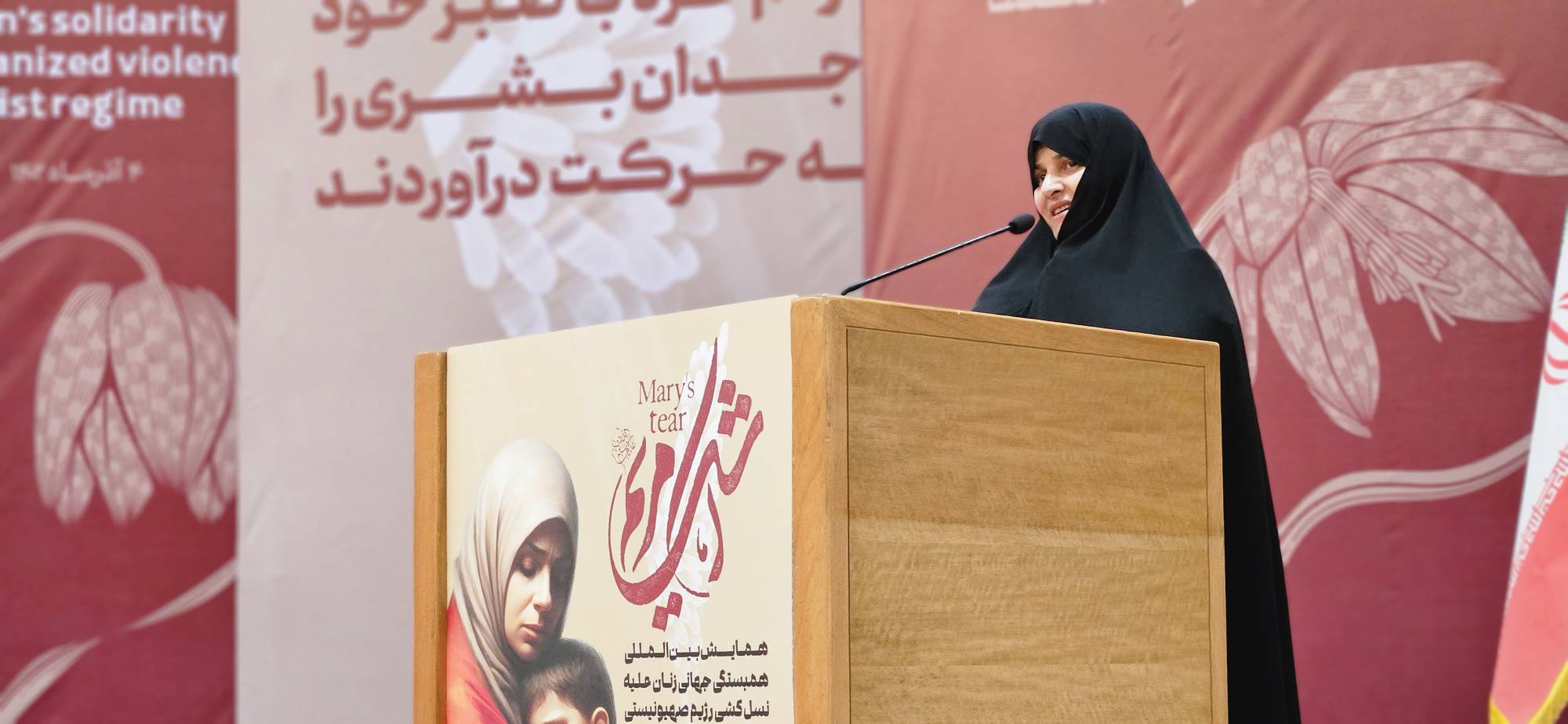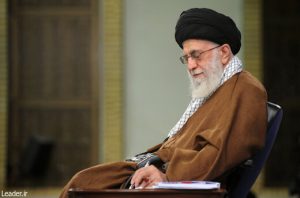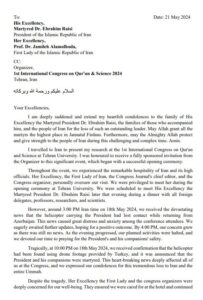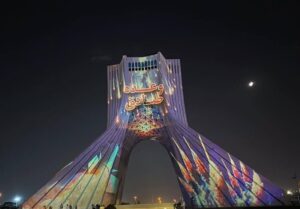The International Conference on Global Solidarity of Women Against Genocide by the Zionist Regime, titled “Maryam’s Tears,” was convened on November 25th, coinciding with the International Day for the Elimination of Violence against Women. The event took place on December 4, 2023, in the Summit Hall in Tehran, with the presence of domestic and foreign dignitaries, as well as a gathering of intellectual and international women activists.
Today, on a global scale, it is designated as the day of the fight against violence against women. In brief, I would like to convey that we find ourselves in an era where women are, at least, subjected to two types of violence: traditional violence and modern violence. Traditional violence is the age-old oppression that has persisted throughout history against women, signifying the confinement of women to domestic behaviors and activities. The imposition of limitations on the domestic capacities of women characterizes this form of violence.
In the current era, we observe the existence of a prevalent form of violence. This violence, commonly observed in most countries, is the second form of violence – modern violence, which emerged with the onset of modernity and the new era. In essence, women were promised that the modern world would save them from domestic confinement, contribute to the development of their capacities, assist in their social and activist activities, and assure them independence. They were told that their identity would not be dependent, and they could attain independent identity while flourishing the abundant human capacities bestowed upon women by the divine. However, let us assess whether this promise has been fulfilled as we gather today to scrutinize the events in the realm of women and reevaluate these centuries of transformation and innovation.
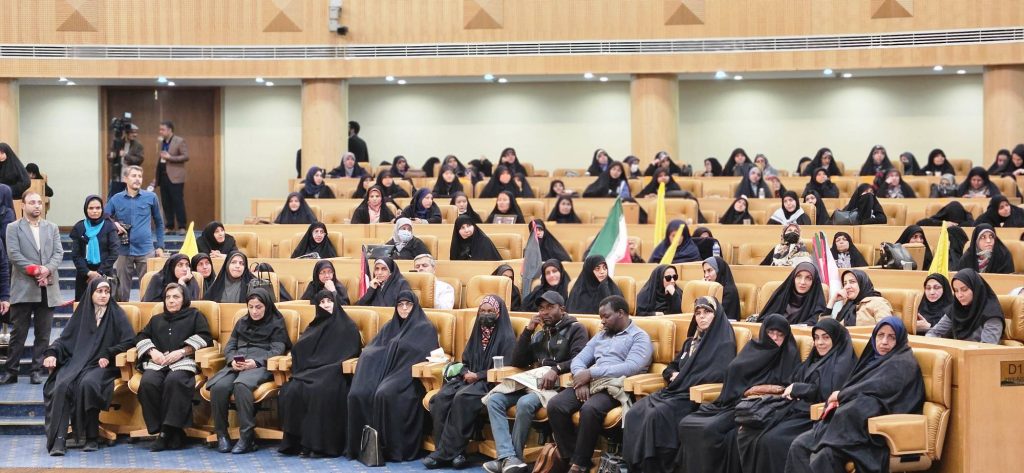
Undoubtedly, women have gained new opportunities. They have, to some extent, escaped illiteracy and succeeded in engaging in external activities. They have managed to secure positions in management and have acquired professions and occupations. However, at what cost? It seems that traditional violence or traditional oppression was, at least, an overt form of violence, and women were aware that they were subjected to violence. It was clear that they were experiencing violence, and there was the possibility that they might bear resentment toward those who subjected them to violence. However, in modern violence, which takes shape under colonization and is related to imperialism, violence against women is invisible and covert. Women involuntarily become part of this violence, and the violence against women is molded into various power structures. It even appears that women themselves have become part of this violence. New violence against the family and the deep-rooted and profound connections of women to the family has taken shape. Family hostility targeted women’s sanctuaries, causing harm to the fundamental support structures of women within the family. In modern violence, women themselves contributed to the collapse of the family, and perhaps they mistakenly believed that this was a prerequisite for independence and the price of independence. They erroneously thought that to achieve independence, they needed to destroy the family. Therefore, they willingly and with their consent joined the struggle against the family, making the family entangled in the flames of the violence against women.
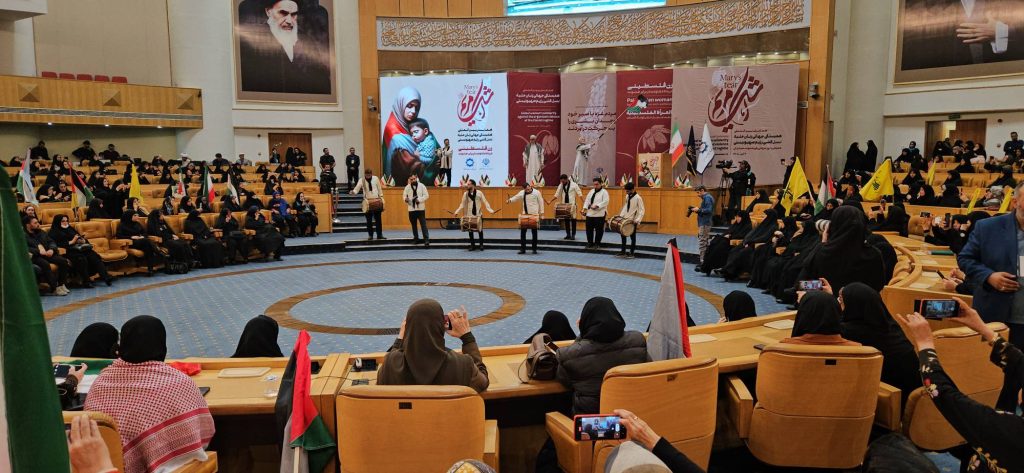
To a considerable extent, many of them have not only been satisfied with their actions but have also taken pride in this form of violence. They believed that by engaging in professional and occupational activities, administrative functions, and social activism, they were contributing to society, oblivious to the fact that societal structures do not take shape without the family model and the indispensable roles of women. A society without a family, which is essentially an unreal concept, is a figment of imagination. Pre-established organizational blocks, designed by rules and regulations, absorbed women who had broken free from domestic confinement. This time, women found themselves confined within administrative organizations and the disciplinary norms of administrative structures. Today, some women are confined within their homes, while others are imprisoned either in the office or in the market, never engaging in social matters. Essentially, social structures do not form; what exists is professions, occupations, and expertise that compel individuals to engage in activities within distinct organizational blocks.
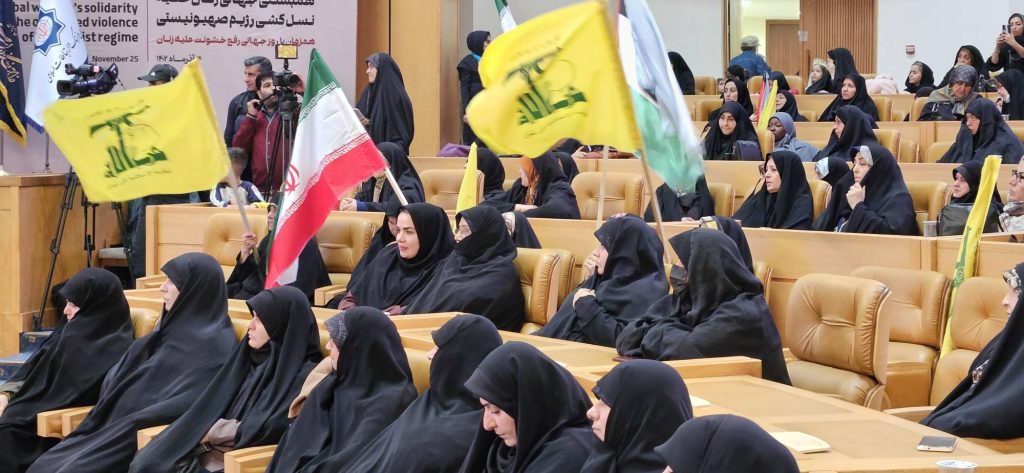
Nevertheless, a certain level of satisfaction has been injected into these forms of violence. In the past, when women experienced violence, they would plan and act to combat it. However, for the violence that entails the confinement of women within administrative structures and consumer markets, no one takes any action, and there is no dissatisfaction. They are entirely unaware of it. For this reason, women have arrived at professions, incomes, and so forth at the exorbitant cost of losing their families and family support.
Fortunately, in our country, Iran, and within Eastern cultures, the institution of the family persists, continually providing support to women. Family-oriented cultures do not permit the disintegration of the family, and many women and men are actively engaged in the struggle and resistance. The principle of marriage in Islam is a robust foundation that contributes to strengthening the position and influence of the family. Fortuitously, the principles of cooperation, solidarity, compassion, and kindness are still dominant in authentic and civilized societies. In such an environment, where global events are fortunately unfolding in favor of families and women, the outcry witnessed in Gaza is a testament rising from the throats of Muslim and Christian women and children, creating a roar in the world. Gaza has become the epicenter of a global revolution. The cry of “Hala min Nasr” from children aims to create a global uproar against oppression, injustice, identitylessness, cultural void, and apostasy. In Surah Nasr, Allah says, “When the victory of Allah has come and the conquest, and you see the people entering into the religion of Allah in multitudes, then exalt [Him] with praise of your Lord and ask forgiveness of Him. Indeed, He is ever Accepting of Repentance.” (Quran 110:1-3). This triumph and conquest signify a realization among people, deserving a place for glorification, gratitude, and thanksgiving. It is imperative to express gratitude to God for this victory.
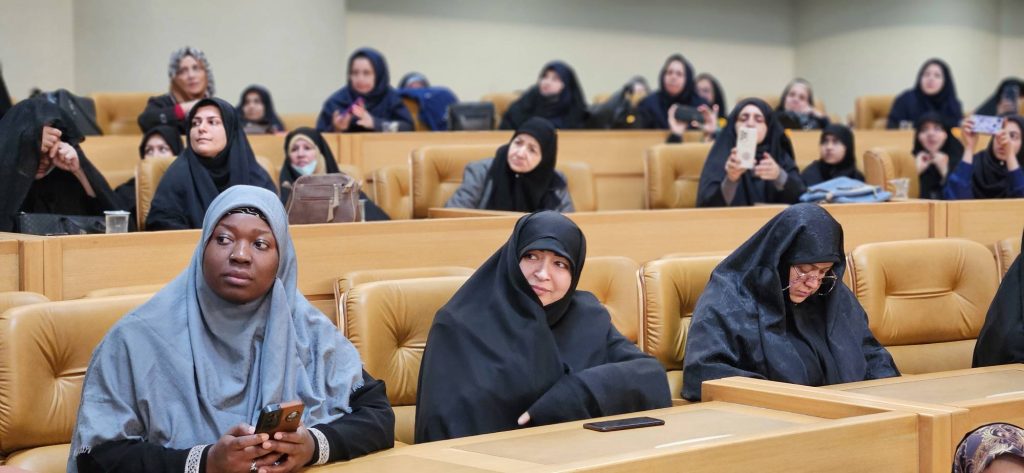
The gathering of women under the banner of “Hazrat Maryam (BPUH) or Maryam’s Tears” is indeed a commendable initiative. All women who consider the illustrious figure of Hazrat Maryam as their role model have chosen a complete archetype. Those who have read the Quran are aware of the abundance and significance of verses related to the character of Hazrat Maryam. The narrative of Hazrat Maryam is so pivotal that it is explicitly mentioned as a model for other prophets who are described as “Ulu al-‘azm” (possessors of determination) in the Quran. It is essential to recognize that Hazrat Maryam was not just a devout recluse; she was an active and virtuous woman. Essentially, her honor is tied to Palestine, and one of the great distinctions of Masjid al-Aqsa is that God directly revealed the angel of revelation to a woman in that sacred place. Maryam was not alongside a prophet who received information about the conversation between the prophet and the angel of revelation; rather, the angel of revelation descended upon her repeatedly. This is a great source of pride. What is more fascinating is that not only Maryam’s spirit but also her physical being was affected, as the Quran elucidates. Hazrat Maryam was initially invited to prostrate with those who prostrate, despite societal restrictions preventing women from worshiping in the mosque. In defiance of these norms, she indeed worshiped in the mosque. Maryam, the daughter of a noblewoman, is a conversant individual who speaks directly with God. This unique aspect is highlighted, although the Quran acknowledges that the details of their conversations may not be explicitly clear.
It emphasizes the highest beauties for Maryam, using the term “Hassan” (goodness) twice in relation to her. It narrates that when she decided to worship in solitude in the Eastern part of the mosque, she suddenly received revelation and was commanded to rise and go among the people, even in such challenging circumstances, with a child who, presumably, in that society, would be stigmatized based on all existing contaminations. However, God testifies to the purity of Maryam in the verses of Surah Tahrim. If we carefully observe, the Quran compares her purity to a few other women. Two of them are the wives of Prophet Nuh and Prophet Lut, who, despite their association with great prophets, were unfaithful. Then, the honorable wife of a Pharaoh with satanic traits is mentioned, emphasizing that, contrary to a comfortable and tranquil environment, she chose the path of a great revolutionary truth. Finally, the third is Hazrat Maryam herself. First, it brings forth the modesty and chastity of Hazrat Maryam, stating that she is a person of modesty and chastity, a fortress and a shield for herself, never tainted, and never will be. Second, it says, “We purified her,” portraying her as immaculate, faultless, flawless, without any trace of impurity, contamination, or blemish. Third, it states that she is chosen, not just for prophethood, but specifically to convey the word of God, which is markedly different. Indeed, she is a prophetess who, as a child, is sent on a mission, proclaiming her rebellion against the oppressive society with the support of such a mother, as in that society, the Book of God was not adhered to. She declared, “I have brought a Book for you,” as this child, alongside this mother, rebelled against the unjust society, empowered by the backing of such a mother.
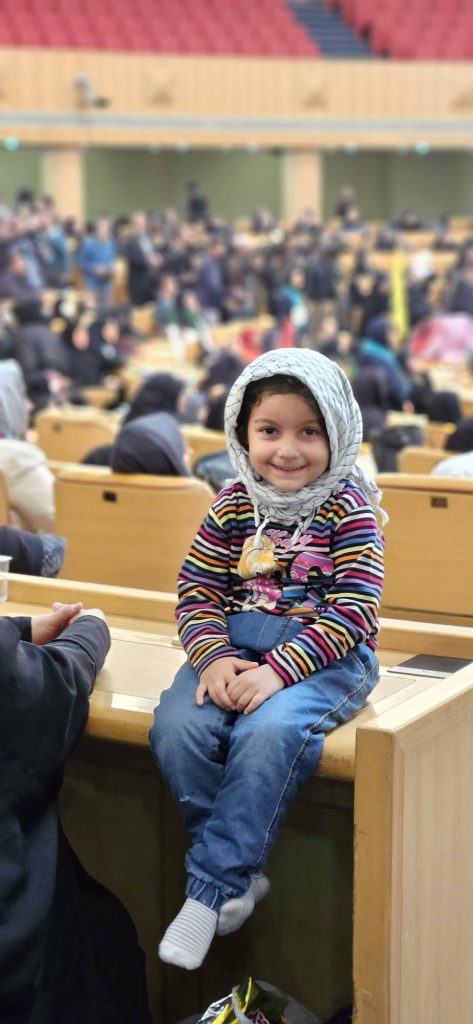
The uprising of Hazrat Maryam serves as a paradigm for all women throughout history and for those who worship the One, highlighting their struggle against oppression, distortion, deceit, and their resistance against corruption and indecency. They stand as the saviors of humanity, and indeed, contemplating the salvation of humanity on Earth is a paramount consideration. In Surah Al-An’am, God states that He has appointed humans as His successors on Earth, addressing all Quran readers, declaring, “You are My successors on Earth, and I want to see how you act and observe your best deeds.” Our predecessors have passed, and we find ourselves in the twists of history. We must comprehend our very sensitive and historical position. The Earth is undergoing destruction, the environment is deteriorating, and the human race is in danger due to corruption and indecency. What we feared might happen with nuclear bombs is unfolding through corruption and decadence. Families are collapsing, and today, individuals must understand their historical and cognitive responsibility. With empathy, collaboration, and cooperation, devoid of personal and group interests, free from injustice, pride, and deceit, they should extend a helping hand, not just to save women but to rescue humanity and families.
This session marks the beginning of a journey. It is hoped that the remarkable women who emerge in Iran, unfortunately still relatively unknown in various corners of this country, engaging in significant endeavors, become increasingly recognized. It is further hoped that these distinguished women collaborate, raising awareness and working together. The aspiration is that the network of monotheistic women in the region and other countries sharing our thoughts and ideals join hands, advancing the elucidation jihad more extensively and robustly. The incidents that occurred in Gaza are, in one aspect, a blessing, and in another, a lesson. Hopefully, we express gratitude for this blessing and draw necessary lessons from these events.

